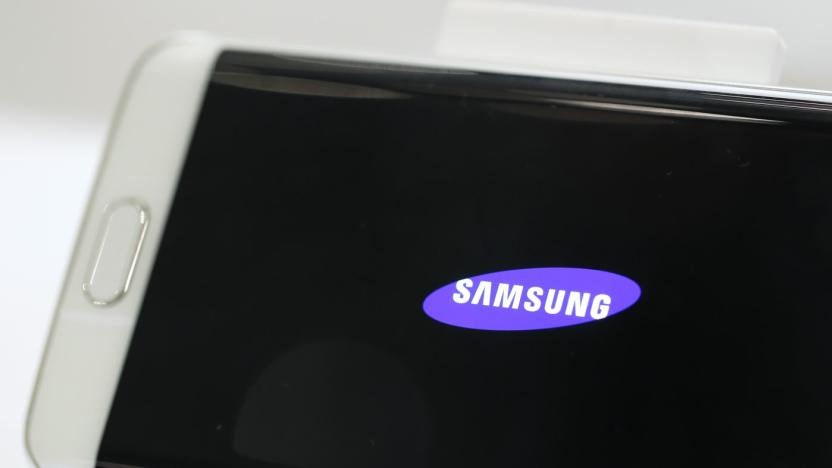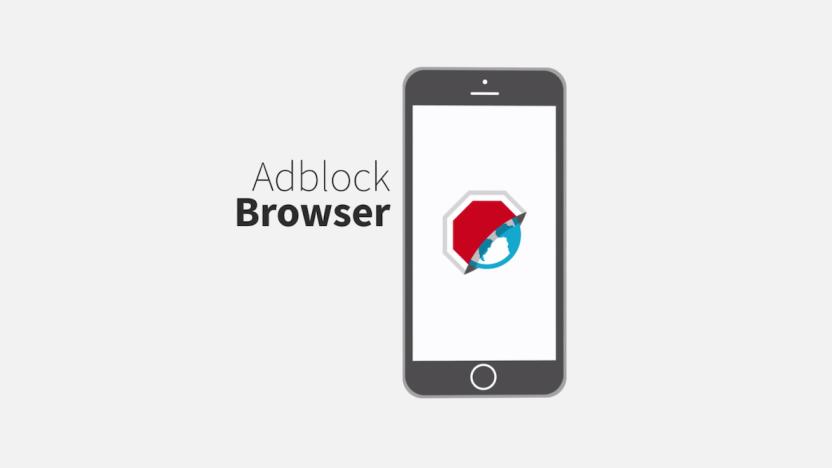timeline16adfree
Latest

Google backs away from banning dedicated Android ad blockers
Google's tough stance on dedicated Android ad blockers might be softening a bit. The company has reversed its decision to yank Adblock Fast from the Play Store following an appeal from the app's developer, Rocketship. Google hasn't officially said what prompted the change of heart (we'll let you know if it has a comment), but TechCrunch understands that Google had originally wanted to limit ad blocking to browsers where it's an option -- any stand-alone apps were against the rules for interfering with other software. Our understanding is that Google is now concerned solely with banning those apps that interfere without permission. Given that Rocketship was working with Samsung, that shouldn't be a problem.

Google pulls Samsung-backed ad blocker from the Play Store
Samsung may have stirred up more trouble than it was expecting when it started blocking ads in its Android web browser. Google has pulled Adblock Fast, the app partner for Samsung's feature, from the Play Store. Allegedly, the title (made by Rocketship Apps) violates Google Play's policies by interfering with other apps and services. That's a bit baffling, since Adblock Fast uses Samsung's own code and had the Korean firm's explicit blessing -- Adblock Plus is using the same code and hasn't run into trouble. The concern, as you can imagine, is that Google might be retaliating against Samsung for daring to hurt its bread-and-butter ad business.

Samsung's Android browser can now block ads
Ad blocking, it appears, is no longer just reserved for app developers -- device makers are getting in on the act too. After Apple led the way and ASUS recently announcing it would begin shipping devices with its own ad blocking software, The Verge reports that Samsung has enabled filters inside its pre-installed Android browser. It'll basically allow device owners to choose the ad units they see and render websites a lot quicker in the process.

Twitter VIPs don't see as many ads as everybody else
Twitter's most prominent members have apparently been enjoying an ad-free (or an almost ad-free) experience these past few months. According to Recode, the microblogging website has started experimenting with giving VIPs special treatment way back in September. The publication's sources say it's a move the social network decided to undertake in an effort to make sure its most active users continue to tweet. We guess the company believes having popular personalities on the website can entice more people to sign up and help it achieve the growth it needs.

Former Mozilla CEO's browser blocks (and replaces) web ads
Let's say you're Brendan Eich, the former CEO of Mozilla -- an organization that thrives on internet privacy. What would you do? If you guessed "build a privacy-minded web browser," you hit the nail on the head. Eich is developing Brave, a Chromium-based web browser that blocks all ads by default in the names of both privacy and speed. It'll supposedly be faster than installing all the relevant blocking tools yourself. However, this isn't strictly a power-to-the-people move... the Brave team has its own ad plans.

You say advertising, I say block that malware
The real reason online advertising is doomed and adblockers thrive? Its malware epidemic is unacknowledged, and out of control. The Forbes 30 Under 30 list came out this week and it featured a prominent security researcher. Other researchers were pleased to see one of their own getting positive attention, and visited the site in droves to view the list. On arrival, like a growing number of websites, Forbes asked readers to turn off ad blockers in order to view the article. After doing so, visitors were immediately served with pop-under malware, primed to infect their computers, and likely silently steal passwords, personal data and banking information. Or, as is popular worldwide with these malware "exploit kits," lock up their hard drives in exchange for Bitcoin ransom. One researcher commented on Twitter that the situation was "ironic" -- and while it's certainly another variant of hackenfreude, ironic isn't exactly the word I'd use to describe what happened.

ASUS' mobile devices will ship with built-in ad blocking
Ad blocking is now easy to find on just about every device you own, but it's rarely included from the get-go. However, ASUS aims to change that. As of early 2016, all of the company's web-capable mobile devices will ship with AdBlock Plus not only included with the company's proprietary browser, but switched on by default. If you tend to visit sites with intrusive ads, you won't have to lift a finger to get rid of most promos.

Mozilla is removing (some) ads from Firefox
Whether you still use Firefox or not, the company has some news: It's pulling ads from the Tiles that pop up when a new tab is opened. The company says that the move is the result of learning what its users want (content that's "relevant, exciting and engaging") and that it'll use the free spaces to help enable discovery of said content. But this won't happen overnight. VP of content services Darren Herman writes that Mozilla will of course honor its obligations with its advertising partners and will gradually end the program over the next few months.

TiVo's ad-skipping tech is coming to its older Roamio DVRs
It looks like TiVo Roamio owners won't need to buy an upgraded box for the new SkipMode feature. Zatz Not Funny points out info on TiVo's website promising SkipMode will come to older Roamio DVRs on December 10th, which the company confirmed in a statement to Engadget. Starting today, a software update is going out that enabled QuickMode sped-up viewing on the Roamio. Meanwhile, a limited test will only let older boxes in the Bay Area and Chicago access SkipMode, for now (it's available nationwide on the Bolt). In case you're not familiar, SkipMode lets users bypass ad breaks on selected shows (prime time broadcasts on certain national networks) just by pressing the green button on their remote. At least so far, it has avoided any legal issues seen by Dish Network's Hopper technology, and hopefully will continue to work as advertised. When I reviewed the Bolt, I found my favorite way to use it was skipping any stray seconds recorded before a show starts, so I could leap to the actual beginning. Update: TiVo has informed us that the SkipMode rollout for Roamio will start November 30th.

Google Play will start labeling ad-supported apps
Google Play clearly states which applications have in-app purchases, and starting in 2016, it'll also be more transparent when it comes to ads. According to Droid Life, Mountain View has notified developers (see the full email below the fold) that they're required to sign into their consoles and declare whether their applications have advertisements. And, if they lie about it, they could face suspension. Google originally launched the "ad-supported" tag in April in its kid-friendly Play Store as part of the Designed for Families program. Now, developers only have until January 11, 2016 to tag their apps, since the label itself is slated to begin showing up in the regular Play Store "early next year."

Apple pulls ad-blocking apps that can 'compromise' security
Apple has removed several ad-blocking apps from its Store that created a risk of "man-in-the-middle" security breaches. While Apple now permits ad-blockers for Safari, the banned apps also block ads from native apps by installing their own "root certificates" and shunting all traffic through a VPN. From there, they read the unencrypted traffic and remove ads, provided you enable the feature. As spotted by Techcrunch, one of the apps Apple removed was "Been Choice," software that even removed ads from Apple's own News app. However, it was also gathering "behavioral data" and sharing it with other companies, offering users points and cash rewards in exchange.

Adblock Chrome extension has been sold to an unknown buyer
Ad blockers have been all over the news lately, in large part because of Apple's decision to allow them in iOS 9. Now, the creator of one of the most well-known ad blockers has apparently decided to sell his creation to an undisclosed company. As reported by The Next Web, creator Michael Gundlach posted a note in an update to his Adblock Chrome Extension saying that he was selling the company, with his "long-time managing director" taking over the role of working with that new company. It seems that Gundlach is no longer working with Adblock at all

Apple's mobile ad-blockers save you time and money, NYT finds
It's no secret that ad-blocking software, well, blocks ads. Now that Apple allows ad-blockers on its mobile devices, The New York Times decided to find out what else the software does for your iPhone 6's data plan. Turns out, using a mobile ad-blocker in the Safari browser netted a 21 percent increase in battery life (that's with internet browsing only though), significantly lowered the device's data usage and often shaved seconds off loading times. This means ad-blockers can save you money, as well. For example, hitting up the Boston.com homepage every day for a month costs about $9.50 in data usage in ads alone, the study found. That's the most extreme example, since that site featured video ads front-and-center. NYT tested 50 news sites in total, including Engadget.

Adblock Browser officially launches on iOS and Android
With more than 400 million desktop installations in its pocket, it was only a matter of time until Adblock Plus became available on mobile devices. Eyeo, the company behind the extension, first tested the water back in 2013, but when Google pulled the app, it decided that incorporating its filters into Adblock Browser was the best way to go. After months of testing, the app has finally launched on iOS and Android devices, promising to let users "browse fast, safe and free of annoying ads" on their smartphone or tablet.

iOS 9's web browser can block annoying ads
Don't like having to wrestle with pop-up ads and similar intrusions when you're browsing the web on your iPhone? You might not have to when iOS 9 rolls around. Apple has quietly let slip that the operating system's version of Safari includes support for content blocking extensions, much like its Mac counterpart -- in other words, it can block ads. You only have to install an app with the right Safari extensions to make cookies, images, scripts and other unwanted material disappear. It's not certain how Apple will police apps with these add-ons, but it's feasible that at least some ad blockers will get approval.

Google yanks ad-blocking apps from Play Store, points to developer agreement
You know how it goes -- "rules" are only "rules" if someone bothers to enforce them. And enforce Google has. While programs such as AdBlock, AdAway, AdFree and the like have been running unabated for quite some time now, Google has evidently buckled down and yanked the lot of 'em overnight. Of course, the company's Play Store developer agreement already makes clear that apps designed specifically to hinder the natural course of advertising won't be allowed, but it's certainly interesting to see the company finally making good on its words. Specifically, the agreement states: "You agree that you will not engage in any activity with the Market, including the development or distribution of Products, that interferes with, disrupts, damages, or accesses in an unauthorized manner the devices, servers, networks, or other properties or services of any third party including, but not limited to, Android users, Google or any mobile network operator." See that bit about third-party clients' services? We're guessing that it's in reference to implementations of advertising code. Looks like the wild, wild west has a sheriff in town.









